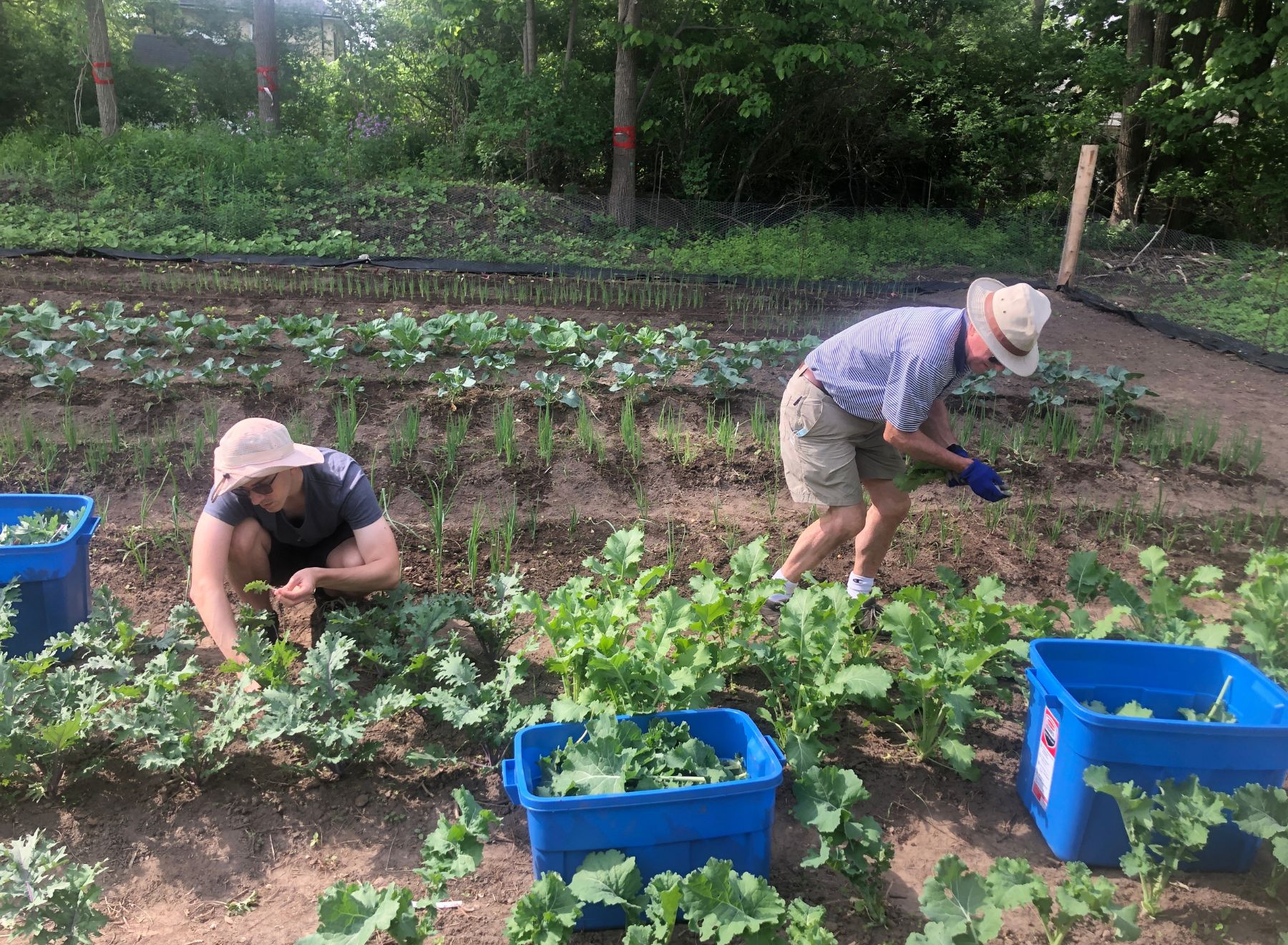This harvest season, a congregation in London, Ont., is celebrating having helped feed an estimated 1,000 people with produce from an urban farm flourishing on its property. Since July, Siloam United, together with local non-profit Urban Roots London, has offered nourishing fare at various community pop-up markets — close to 50 in total — at different sites throughout the city.
The intention, says Jeremy Horrell, co-founder of Urban Roots, is to offer people a pay-what-you-can option for accessing healthy, nutritious and culturally diverse food. “Access to food was the centre stage but music and crafts from the local community were equally as celebrated,” he says. The produce was distributed to four different community resource centres, he adds, which in turn hosted the markets.
Part of a partnership, now in its second year, between Siloam United and Urban Roots, the markets are an expression of a shared commitment to food security. The produce is grown on what was previously a vacant lot on the church’s property.
“For us, it’s not about revenue generation,” says Catherine Glover, chair of council at Siloam United. “It’s about feeding people.”
At a time of rising food costs due to soaring inflation, Siloam United’s project is a model of how congregations can leverage one of their greatest assets — their land — and use it to promote the common good.
But while churches have assets in the form of land, says Siloam United’s garden coordinator Randy Donkervoort, they don’t always have the right skillset. It’s why the congregation began collaborating with Urban Roots in 2019. Dedicated to producing organic produce through sustainable urban agricultural practices and then distributing it locally, the organization’s values align with those of Siloam United. The onetime farming congregation has a history of involvement in food security and poverty reduction.
“For us, it was always and only about feeding people. And so I think the Urban Roots model really appealed to us,” says Glover.
Urban Roots operates on what it calls a “thirds model.” “No less than one-third of what we grow gets donated to our various partners. And it’s usually more than that,” says fellow co-founder Richie Bloomfield. Another third, he explains, is sold at an affordable rate through market partnerships — meaning organic produce is sold at far cheaper rates than what is available, for example, at a discount store. The final third, he adds, is sold to restaurants that are willing to pay a wholesale organic vegetable price, which in turn helps offset the organization’s operating costs.
While an almost infinite array of partnerships could happen with an organization like Urban Roots, says Horrell, what stood out about Siloam United was its level of engagement. “There was a genuine interest in the work that we were doing, but also in what work they would be doing as part of the project,” he says.
More on Broadview:
- Sask. program links Indigenous land users with settler farmers
- Pumped up: congregant lifts 80,000 pounds for Afghan refugees
- Japanese method can grow forests 10 times faster — and help heal our planet
After doing soil tests and getting municipal approval for zoning and tree removal in the fall of 2020, in January 2021 Urban Roots worked with Siloam United to clear the land. “That was a community effort — our Siloam members and farmers, and several of the Urban Roots folks came out,” says Donkervoort. “And within a day we had it cleared and cut up and ready to go.”
This season, volunteers and workers focused on intensifying fruit production. Strawberries, raspberries and currants have been abundant. A small orchard area has boasted pears, apples, sour cherries, plum trees and goji berries. And then there is the main garden area, which has been lush with kales, collard greens, onions, lettuce, Swiss chard, zucchini and winter squash. Native plants have also provided pollinator habitats for insects and birds.
While access to healthy food is crucial, Urban Roots and Siloam United also strive to be culturally inclusive. The food that’s grown in the garden, Horrell says, includes plants, like okra, that can’t easily be found elsewhere.
The pop-up markets were intentionally held in different pockets of the city, so that people of all backgrounds could enjoy this year’s harvest.
“Culturally diverse food is also very important. So it’s not just one type of food that’s grown,” Horrell adds. “We value the phrase ‘seeds with intention.’”
***
Julie McGonegal is an associate editor at Broadview.















